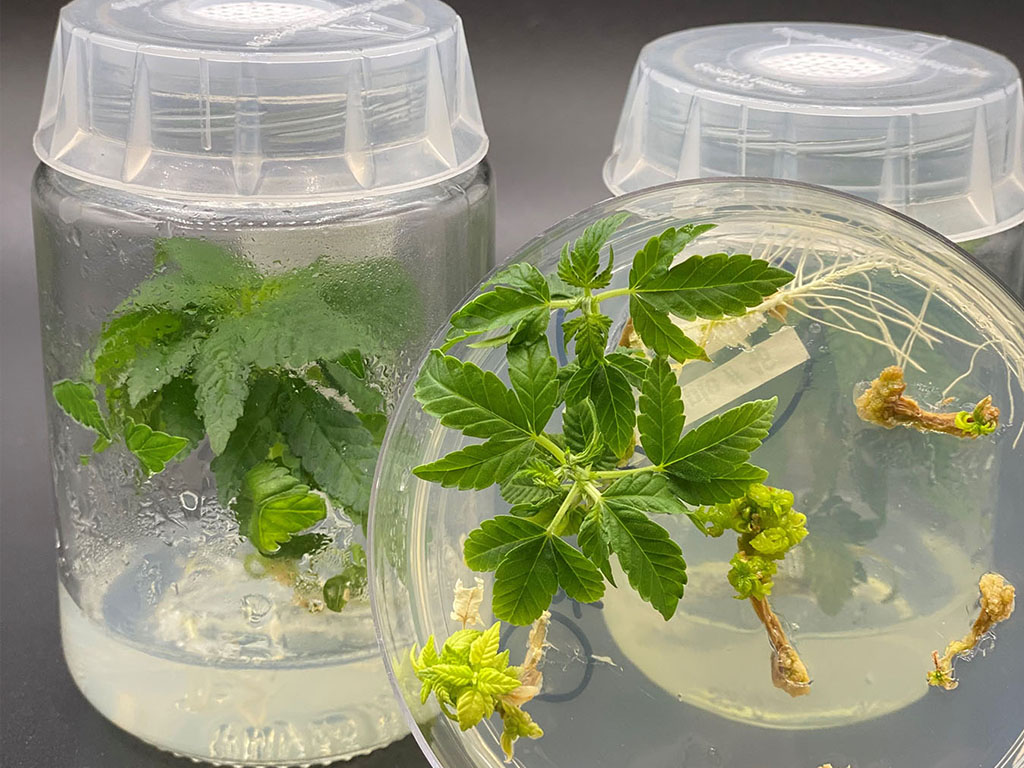AgriLife achieves stable transformation in industrial hemp

Farmers can look forward to a future in which their industrial hemp crops have optimal phenotypic and trait characteristics, including the potential to completely eliminate the expression of Delta-9 THC.
Delta-9 THC is one of the plant cannabinoids with psychoactive properties that occur in the marijuana plant and are present in the hemp plant in much smaller quantities, less than 0.3%. Hemp crops with Delta-9 THC levels above 0.3% may be impounded and destroyed, so producers must be extremely careful to not allow their CBD, fiber or grain hemp crops to exceed that threshold.
Texas A&M AgriLife Research and Growing Together Research Inc., GTR, undertook a partnership in August 2020 to develop and optimize protocols for genetic transformation of industrial hemp for commercial use cases. GTR is an Indiana-headquartered biotechnology company focused on computational genomics and bioengineering of the hemp organism.
Recently, AgriLife Research and GTR achieved the significant breakthrough of demonstrating successful stable transformation and regeneration of an industrial hemp cultivar, said Michael Thomson, AgriLife Research plant breeder and H.M. Beachell Rice Chair in the College of Agriculture and Life Sciences Department of Soil and Crop Sciences.
Thomson led the AgriLife Research team, consisting of post-doctoral associate Nikolaos Tsakirpaloglou, graduate student Leonard Herndon, and research specialists Marco Molina and Mayra Molina, both at the AgriLife Multi-Crop Transformation Facility. The facility is located within the Texas A&M Borlaug Center, Bryan-College Station.

